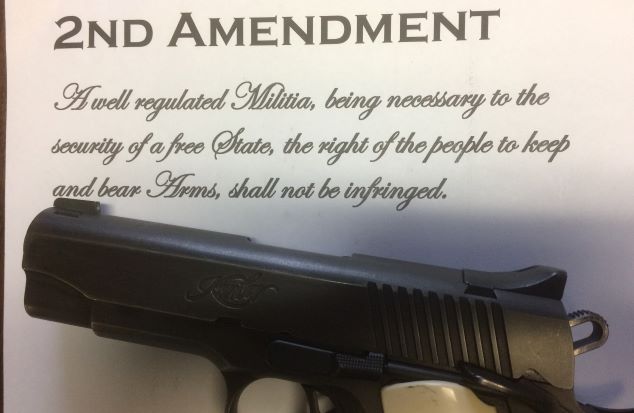
New restrictive gun control laws have been signed in Colorado, Oregon and Washington, while in Texas, the media is reporting how Gov. Greg Abbott and state lawmakers have “relaxed” the rules on Lone Star gun owners.
It all depends upon your state of residence whether you’re enjoying more or less Second Amendment freedom as the Fourth of July national holiday unfolds.
For example, Spectrum is reporting how Democratic New York Gov. Kathy Hochul “celebrated the codification of the state Office of Gun Violence Prevention.” The notion that a government office could somehow prevent gun-related violence is a holdover idea from the Joe Biden administration, which operated the White House Office of Gun Violence Prevention. This mini-bureaucracy was a not-so-camouflaged effort by the Biden White House to create what amounted to an official gun control office within the administration. One of its tasks was to promote creation of state-level clones. Within days of taking office in January, President Donald Trump dissolved the office.
In Tennessee, the Nashville Banner is reporting that enactment of HB 1093 expands the state’s definition of “machine gun” to include firearms fitted with so-called “Glock switches” or other parts which convert a handgun to fire full-auto.
Out in Oregon, Senate Bill 243 is awaiting Democrat Gov. Tina Kotek’s signature. This legislation “will increase the locations where members of the public can’t carry a gun, even if they have a concealed handgun license,” according to OregonLive. The measure also allows local municipalities to add restrictions on where even licensed sidearms may be carried. The legislation was opposed by gun owners and Republican lawmakers.
Anti-gun Democrat lawmakers in neighboring Washington pushed through legislation requiring a permit-to-purchase before anyone can buy a firearm. The law does not take effect until May 2027. Included in the measure is a training requirement and background check to get the permit. The training requirement also applies to those getting a concealed pistol license.
As noted by the Washington State Standard, “Starting in two years, House Bill 1163 will require those interested in purchasing guns to apply for a five-year permit through the Washington State Patrol. Applicants must pay a fee and have completed a certified firearms safety training program within the past five years, with limited exceptions.”
Colorado gun owners face a similar measure, except that in the Centennial State, the law kicks in next year. According to a news release from Gov. Jared Polis’ office, “Beginning August 1, 2026, SB25-003 implements and enforces Colorado’s existing law by requiring a permit and firearm safety training to purchase high-powered firearms that accept detachable magazines. The bill also prohibits the purchase and sale of all rapid fire conversion devices, like bump stocks and binary triggers.
“SB25-003 allows a person to purchase a semiautomatic firearm with a detachable magazine after undergoing a background check and completing a firearm certification course that includes information on safe gun usage, federal and state firearm laws, de-escalation and crisis intervention strategies, range time, and more.
“The bill does not impact the sale of shotguns, commonly used hunting rifles, semiautomatic firearms that have fixed magazines, and the majority of handguns. While SB25-003 prohibits the sale of gas-operated semiautomatic handguns, the sale of recoil-operated handguns, which make up over 90 percent of the pistol market, are not impacted by the bill. The bill does not impact possession of currently-owned firearms.”
Meanwhile, in Texas lawmakers and Gov. Greg Abbott still believe in Second Amendment freedoms. Abbott recently signed legislation to remove short-barreled firearms from the state’s list of illegal guns, according to Fox News in Austin. Federal law regulating rifle and shotgun barrel length remains in effect, however.
Also in Texas, Abbott signed Senate Bill 1362, which bans recognition of so-called “red flag” orders.
And House Bill 3053 puts an end to local government participation in gun “buy back” programs, which have been acknowledged to have little or no effect on crime. Such efforts are merely media events.